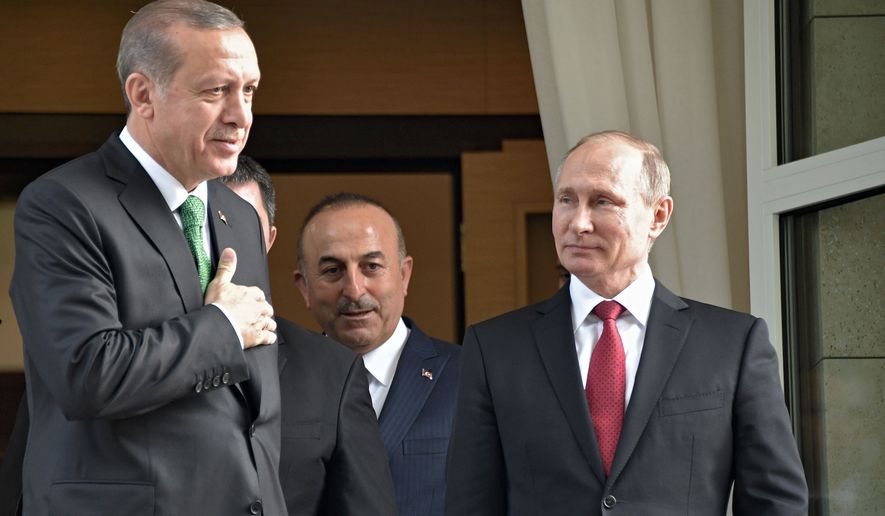2017/05/05 17:06:00
The war of words between Washington and Ankara over the U.S. military’s partnership with Kurdish paramilitaries in Syria escalated Wednesday, when a senior aide to Turkish President Recep Tayyip Erdogan suggested American troops could be targeted alongside their Kurdish allies in the country’s ongoing air war against the militias.
Senior presidential aide Ilnur Cevik said U.S. forces who are teamed up with members of the Kurdish People’s Protection Units, or YPG, were in danger of being hit by Turkish fighters patrolling the volatile border region with Syria.
If YPG units and their American military advisers “go too far, our forces would not care if American armor is there, whether armored carriers are there,” Mr. Cevik said during an interview on Turkish radio station CRI TURK Wednesday. “All of a sudden, by accident, a few rockets can hit them,” he added, referring to partnered U.S. forces.
When asked to clarify that U.S. advisers or artillery positions would be in danger from Turkish warplanes, if they continued to support YPG operations in northern Syria, Mr. Cevik replied bluntly that they would.
Later, Mr. Cevik attempted to walk back his comments on social media, regarding U.S. forces working with Kurdish militias. “Turkey has never and will never hit its allies anywhere, and that includes the U.S. in Syria,” he said in a tweet posted shortly after Wednesday’s radio interview.
His comments come days after U.S. forces moved into the Syrian Kurdish enclave of Rojava, in a dramatic show of solidarity amid Turkish airstrikes targeting those U.S.-backed forces there. The strikes were part of an ongoing counterterrorism operation targeting members of the YPG, which Turkey has condemned as a terrorist organization.
Syrian Kurds, some of which are members of or allied with the YPG, make up half of the Syrian Democratic Forces, or SDF — the 50,000-man strong constellation of Arab and Kurdish militias backed by the U.S., who are preparing for the final, large-scale assault on Raqqa, the self-styled capital of the Islamic State terror group also known as ISIS or ISIL.
But Col. John Dorian, the top spokesman for U.S. and coalition forces in Iraq and Syria, said the U.S. mission in Rojava was not intended as a show of support for the YPG or as a condemnation of Turkey’s recent actions against the Kurdish militias.
The mission in Rojava was to reassure coalition allies in the area, and as a show of force to quell cross border violence between Turkish and SDF fighters in northern Syria.
“They are there to observe and report, and reassure our allies. That’s it,” Col. Dorian told reporters at the Pentagon.
He stopped short of calling the U.S. presence in Rojava a peacekeeping mission, adding that would require an expanded role for U.S. forces there.


